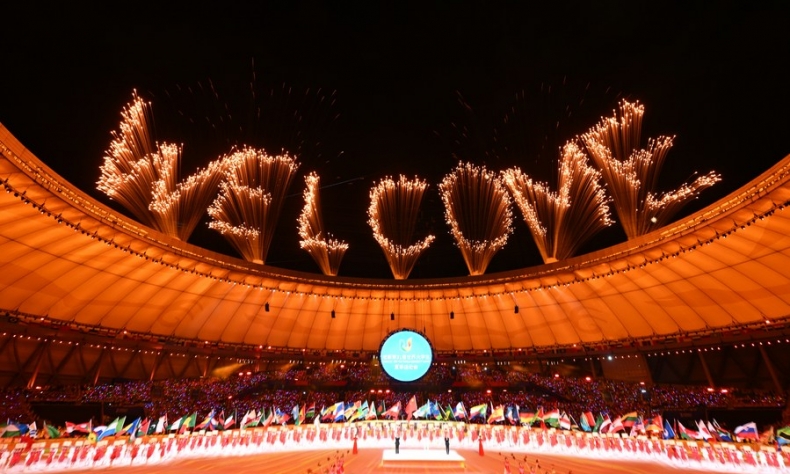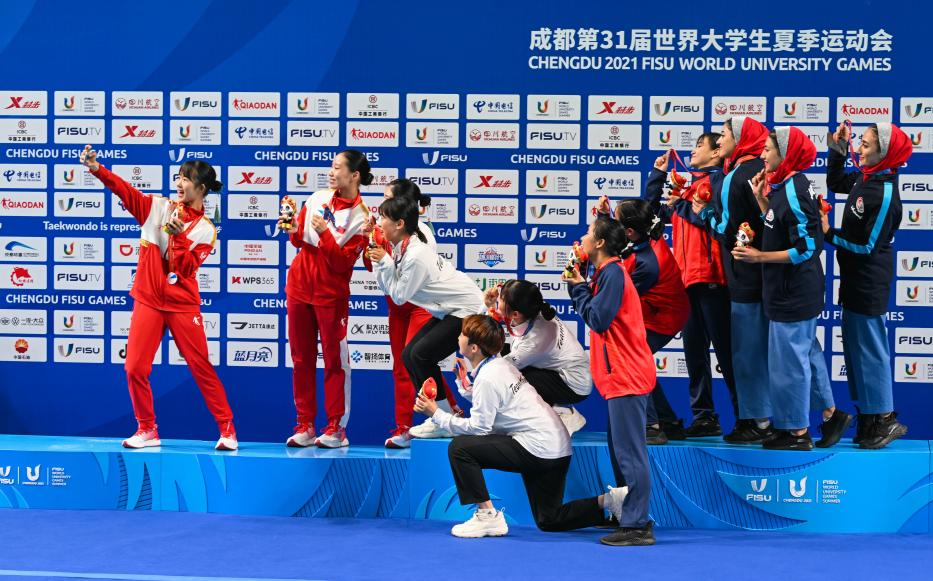Chengdu Universiade Demonstrates China’s Inclusivity

The sheer perseverance and dedication that has gone into the Chengdu Universiade is an important reminder of what nations and their youth can accomplish together.
The 31st FISU World University Games in Chengdu is off to a flying start — enthusing local spectators, displaying cutting-edge technology and presenting thrilling international contests. With 6,500 athletes from 113 countries and regions participating, the event is a powerful demonstration of inclusion, diversity and unity through international youth sports. The lead-up to the event was a prime example of how to nurture the world’s future generations through sports, and ensure that the Games provide an opening for even stronger state-to-state diplomacy.
China’s celebration of youth and inclusivity have been well-reflected as it has welcomed foreign leaders, guests and participants to the country’s first international multi-sport event since the COVID-19 pandemic, calling on promoting solidarity through sports, building up positive energy across the international community, joining hands to tackle global challenges such as climate change, food crises and terrorism, and shaping a better future through cooperation.
The Chengdu Universiade’s dynamism has offered China a unique opportunity to deepen state-to-state relations, encouraging mutual understanding between their younger generations in the process. For instance, Beijing recently revealed the prospect of a landmark China-Georgia strategic partnership, which will serve as a “new starting point” for relations that have been consolidated over decades and improved the lives of Georgian people.
Similarly, China and Mauritania are set to enrich their cultural, youth and media cooperation, while Beijing’s engagement with Guyana calls for even stronger people-to-people exchanges, which serve as the “very foundation for international relations.”
By hosting competitions among global youth in the vibrant southwestern metropolis of Chengdu, China continues to make a compelling case for nurturing youth contributions to world peace and development. Over six decades ago, the World University Games emerged as a symbol of enduring bonds and friendship among nations and their youth, informed by the values of fair play, integrity, cooperation and perseverance. The same values have also inspired nations to navigate the changes of the world, of our times and of the course of history.

Among the hallmarks of an empowered youth is its ability to approach diversity through inclusion and mutual appreciation. For a world that is increasingly in need of unity to inform progress on the climate, equal representation, enduring peace and globalization, an empowered youth can promote intercultural dialogue and demonstrate greater adherence to the shared values of humanity. There is no doubt that the Chengdu Games is a novel opportunity for countries to champion such values, and write what is rightly regarded as a “new chapter in building a community with a shared future for mankind.”
Since it was first held in 1959, the World University Games has also propelled sports-led socioeconomic development, and served as a melting pot for dynamic partnerships among youth. Consider Chengdu: the development, refurbishment and expansion of over four dozen facilities and venues in the city has increased public awareness of high-grade infrastructure and services. In effect, the international multi-sport event compliments China’s aspirations to become a sports powerhouse by 2050.
In a similar spirit, active participation from over 113 countries and regions allows delegates to engage in lasting cultural exchanges, and also communicate their sense of acceptance toward diverse civilizations. It is only fitting that a city as dynamic and diverse as Chengdu plays host to the Games, given its rich history and role as a cultural hub connecting China to the world.
Ultimately, the sheer perseverance and dedication that has gone into the Chengdu Universiade is an important reminder of what nations and their youth can accomplish together. China’s flurry of diplomacy with foreign partners and support for youth development through sports, presents a model of sustainable peace and development for the rest of the world to build on.
Hannan R. Hussain is a foreign affairs commentator, author and recipient of the Fulbright Award.
 Facebook
Facebook
 Twitter
Twitter
 Linkedin
Linkedin
 Google +
Google +










